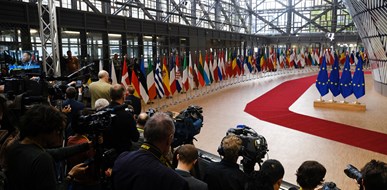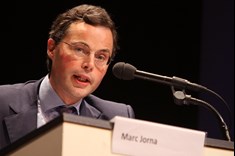SAVE THE DATE: ‘Rule of law challenges and prospects in Albania and North Macedonia’
Published 2 September 2019
While enlargement presently is not a top priority for the EU, it is a top priority for candidate countries in the Western Balkans, which are conducting comprehensive rule of law reforms. ©Shutterstock.
What are the rule of law challenges that Western Balkan countries such as Albania and North Macedonia are currently facing? And what are their implications for the EU enlargement agenda? These topics, amongst others, will be addressed in the upcoming event ‘Rule of law challenges and prospects in Albania and North Macedonia’ on October 1 at the Europe House in the Hague.
Since the accession of Croatia to the EU in 2013, the European Union has faced numerous challenges: The Euro crisis, the unprecedented migration influx, Brexit, the rise of populism and the rule of law backsliding in some of its member states. Most of these challenges remain unresolved, resulting in an inward-focused EU, which explains the postponing of the decision whether or not to open accession negotiations with Albania and North Macedonia to the October European Council.
While enlargement presently is not a top priority for the EU, it is a top priority for candidate countries in the Western Balkans, which are conducting comprehensive rule of law reforms. Albania, for example, is going through an unprecedented vetting of the judiciary, and North Macedonia, after solving the political dispute over its name with Greece, is pursuing in-depth reforms of public administration and good governance.
Stricter scrutiny of reforms and their implementation
The whole process of shaping domestic institutions according to rule of law standards is taking on a new meaning since the rule of law backsliding in Poland and Hungary and the negative experiences with Romania and Bulgaria, especially concerning judicial independence and anti-corruption measures.
In its December 2018 conclusions, the European Council decided that the Cooperation and Verification Mechanism - which is a transitional instrument for monitoring and assisting Bulgaria and Romania in the field of judicial reform, corruption and organised crime - should stay in place. These developments will undoubtedly translate into stricter scrutiny of reforms and their implementation for all Western Balkan countries.
Join us on October 1 at the Europe House to learn more about the rule of law in the context of Albania and North Macedonia. Our speakers, Mr Gent Ibrahimi, chairman of the High Council of Prosecutors of Albania, Dr Denis Preshova from Ss. Cyril and Methodius University in Skopje and Mr Marc Jorna from the Directorate-General for Neighbourhood and Enlargement Negotiations of the European Commission, will discuss the current rule of law challenges the EU and Western Balkan countries are facing as well as identify the potential implications of these challenges for the future enlargement of the EU. In addition to discussing the existing challenges, the speakers will also take stock of the current achievements in the area of rule of law in their respective countries. The event will be moderated by Dr. Narin Idriz, researcher at TMC Asser Institute, and Dr. Darinka Piqani, Assistant Professor at Leiden University and board member of the Dutch Albanian Foundation.



Registration and practical info:
Event: ‘Rule of law challenges and prospects in Albania and North Macedonia’
October 1, 2019
Europe House (Korte Vijverberg 5, 2513 AB, The Hague)
Time: 15.00 hours
Register for the event here.
The event is jointly organised by the Asser Institute (in the framework of its ‘Global Europe’ project) and the Dutch Albanian Foundation, with the cooperation of the European Commission and the Albanian Embassy in The Hague.
‘Global Europe’ project
The ‘Global Europe’ project is part of the research strand Advancing Public Interest by the Asser Institute. The project explores the EU’s identity as a global actor. What are the global effects of EU law? And what are the external and internal challenges that may affect the Union’s aspirations as a global actor, and the reach of its regulatory power outside its territory? Ultimately, the project deals with questions of trust pertaining to the EU as an international legal actor.
The ‘Global Europe’ project is led by Dr Eva Kassoti and Dr Narin Idriz. For more information about the project click here.
The Dutch Albanian Foundation
The Dutch Albanian Friendship Foundation is a recently established Dutch Foundation, whose founders include former Dutch ambassadors to Albania and members of Albanian diaspora in the Netherlands. Its mission is to promote the Albanian culture, history and societal developments in the Netherlands and to enhance collaboration and partnership between the two countries.
Further reading
Louwerse, L. & Kassoti, E. ‘Revisiting the European Commission’s Approach Towards the Rule of Law in Enlargement’, Hague Journal on the Rule of Law (2019): 1-28.
Piqani, D., ‘A never-ending story: EU postpones decision on negotiations with Albania and North Macedonia’, Leiden Law Blog, 1 July 2019.
